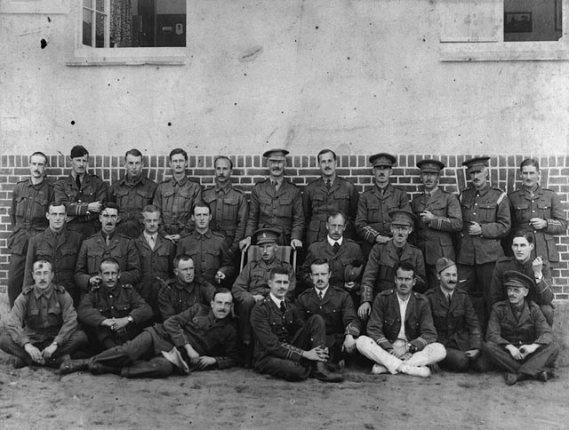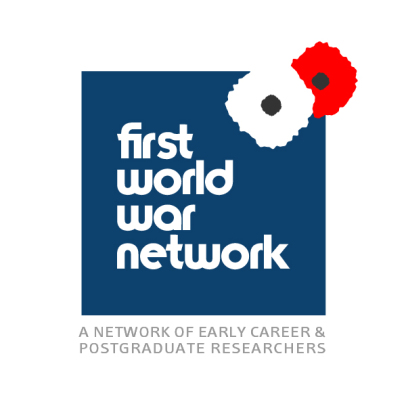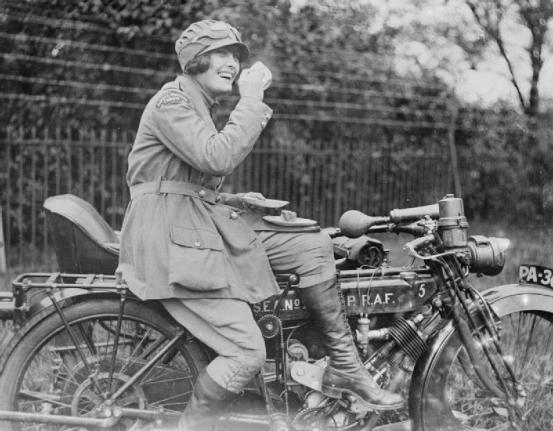This post, written by FWW Network founder member Dr Oli Wilkinson, originally appeared on the Scottish Graduate School for Arts and Humanities website. You can take a look at it by clicking this link.
One of the final things I did before submitting my PhD thesis was the ‘Acknowledgments’ section. The exercise enabled me to reflect upon my PhD journey and, as I termed it, to think about the challenges it had thrown at me. I thought this a clever reference to the title, ‘Challenging Captivity’, and themes of my doctorate, which had explored the challenges confronting captured British servicemen during the First World War and the strategies adopted by POWs in response. In that vein, I took the opportunity to identify the people and supports that had helped me rise to the challenge of the PhD.
One vital resource to me had been the thriving History Postgraduate Community at Lancaster University, of which I had been an active member, and which had aided in the development of my intellectual ideas, and providing opportunities to develop ‘career’ skills, via things like a postgraduate seminar series and an annual PGR led conference (Histfest). It has also provided friendships and informal support, opportunities for a beer and a moan in the bar, and countless off-the-cuff chats initiated by the question: ‘how’s it going?’. In these ways I could raise problems I was facing (the pressures to write; the demands of supervisors; research problems; upgrades; deadlines; teaching responsibilities), learning from the experiences of others who had dealt with those same issues. Moreover, my experience would seem to be a common one. Whilst perusing the ‘Acknowledgment’ sections of monographs, especially those books born from doctoral research, I have often seen authors similarly thank ‘their’ post-graduate communities. An active, supportive, network of PGRs would thus seem to be a good thing to help you deal the challenges that a PhD throws at you.

Group of Canadian POWs near Krefeld, Germany, 1917. Wikimedia Commons.
But what about post-completion? This context brings a raft of new challenges for the Early Career Researcher, especially one wishing to pursue an academic career. Nobody reading this post will be surprised to hear that the job market for positions in UK institutions is tough. The recently completed scholar quickly learns that it is not enough just to have a PhD. Indeed, any budding academic must fulfil a host of other requirements if they hope to gain ‘entry’ into the sector: a REF-able publication record; evidence of successful external funding bids; a proven ability of building IMPACT into your research activities; experience in working collaboratively with non-academic partners; a track record of teaching.
Yet, part of what makes the situation so tough is that the ECR must respond precisely at the point when they lose many of the props that had supported them during their PhD. Notable is the loss of a formal institutional affiliation. Commonly, that anchor is replaced by the insecurity of temporary, contracted, teaching posts, which do not hold the same advantages in terms of research support as permanent staff members (or as PhD students for that matter). Perversely, the lack of institutional affiliation impacts on your ability to gain the very things vital to getting a permanent post, such as your eligibility to apply for research funding or to gain experience in such things as co-designed/co-produced projects with non-academic partners. Indeed, without the security, support and resources of an institution, and without ongoing supervision or mentorship, it is difficult to know where you would start with such projects or how you could practically undertake one anyway.

The new national First World War Network for Early Career and Postgraduate Researchers (FWW Network), launching in Edinburgh on 18 March 2017, has been designed with the challenges facing current PGRs and ECRs in mind. It has been created by PGRs and recently completed ECRs, and it strives to be a supportive network for this community. In many ways, it is in the spirit of those post-graduate communities active in many universities. Yet, it is not tied to any one institution and, crucially, it extends its benefits into that post-completion context. It can do so because it is AHRC funded and backed by the practical supports of the five First World War Engagement Centres. Best of all its FREE to join for PGRs or ECRs working on any aspect of the First World War. Its core aim is to bring together researchers from across the country, providing a forum for members to promote their research interests, activities, and outputs. The hope is that by connecting scholars will foster research collaborations between members working on parallel topics and themes.
In addition, the network will offer formal supports and funding opportunities. These include the provision of relevant workshops and training opportunities. Here, the steering committee is actively seeking input from its membership to ascertain what sorts of training would be most useful. ‘Responsiveness’ is a watch-word for the venture; working with and for ECRs and PGRs. Moreover, in a reaction to the concerns of the current research context, the network seeks to provide opportunities for its members to get involved with collaborative research, thereby developing the research capacity (and employability) of our members. To these ends, we will help to link members with non-academic partners, act as a conduit to the supports offered by the Engagement Centres (including practical supports of space, resources, and mentorship), and provide seed-funds to assist ECRs wishing to undertake their own collaborative research project.
So if you are a PGR who is working on the First World War, or an ECR with a research interest in the field, then the FWW Network is for you. If you are based in Scotland why not come along to our launch on the on the 18th March, at the University of Edinburgh, as part of the PGR led symposium ‘What Tommy Did Next’ (http://www.what-tommy-did-next.org.uk/)? Registration for that event is still open and we would love to see you there. If you can’t make it, then follow-us on Twitter (@FwwNetwork), send us an email requesting to join (fwwnetwork@gmail.com), and be part of a new, supportive community for the next generation of leading First World War scholars!

Despatch Rider in the Women’s Royal Air Force (WRAF), c.1918. Wikimedia Commons.


